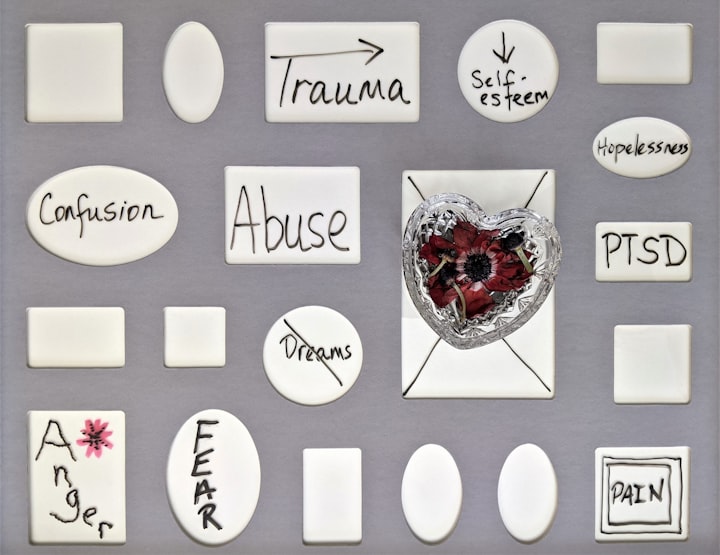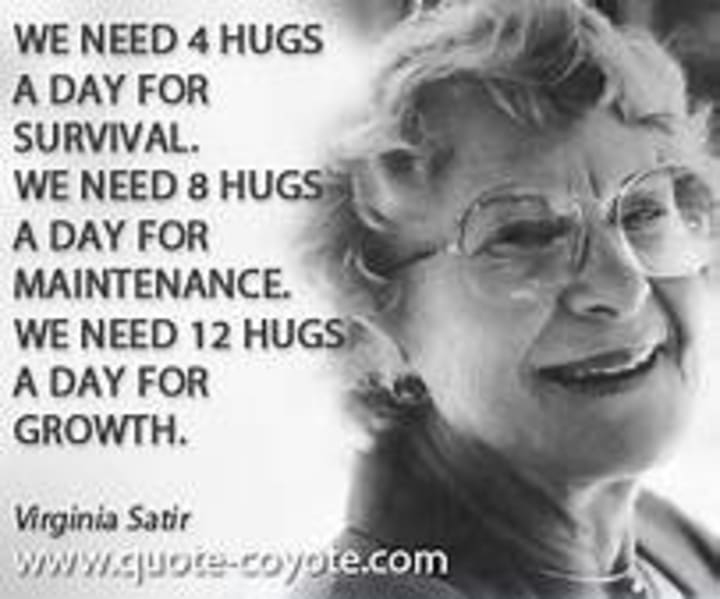It Is So Important To Have Help For Trauma, Grief, And Loss
Then there is shame and guilt and a hundred other topics all related to trauma, grief, and loss!

My career was spent working with program participants on trauma, grief, and loss. I thought all counselors/therapists were doing that. I believe that by the time someone gets into substance abuse or mental health programming, they have trauma, grief, and loss.
Elizabeth Kubler-Ross studied the dying and the process of dying and developed 5 stages of grief. Denial, Anger, Bargaining, Depression, and Acceptance. She worked with David Kessler on writing additional books. He is known as a foremost expert on grief.
The quote below is from Elizabeth Kubler-Ross and John Kessler, which I am guessing is probably the same person as David Kessler, but I couldn't find that on Google!

How is shame and guilt and a hundred other topics all related to trauma, grief, and loss. We can experience shame and guilt for our part in the trauma, grief and loss. It is common to do that. Our self esteem can plummet. We can experience PTSD symptoms without being in the war.
We will experience anger as a normal part of the grieving process.
I recognize that some people may think that when I say I have done grief work in counseling and therapy for 30 years, I am talking about helping people cry around. No, that is not what is involved. Yes, crying is good medicine, but not the only medicine for grief.
For one thing, we run out of tears. We do not run out of tears forever, but we do run out until they can be replenished.
I have given many people permission to cry as they were told they are a big girl/boy now and don’t cry as they are all grown up now. And some have been told they would be given something to cry about if they didn’t stop crying. Some others don't cry while taking an antidepressant.
Still, others believe that if they started to cry they won’t be able to stop. I have helped some learn how to stop, so they would be okay with crying again.
Right brain activity is healing; I have encouraged this for almost everyone. The older we get the more loss we have experienced and the more important it is to know how to 'rebuild' yourself. Writing is one of the activities that help me to grieve. I enjoy poetry as it is truly healing work.

I attended training with Virginia Satir, the mother of family therapy. With her, I learned the importance of the genogram, and how to provide family reconstruction. Virginia Satir would work with an individual on stage. It was powerful work that affected the group, not just the individual.
Not everyone can do this work even though I have witnessed some try it after attending just one training. I was hurt by their inexperience as were others until a friend stepped in and fixed it for us. She had more time with Virginia Satir and could do the work without hurting anyone!
We have used sculpting and some basic psychodrama exercises with program participants to get to healing. Talking it out can be very helpful also. It loses the power it has had over the individual simply by talking about it with someone that is safe to talk to.
I did the healing work of Virginia Satir with one particular counselor for several years and I witnessed Virginia Satir doing the work at several trainings back in the 1980s.
I have done a guided imagery meditation for years that I learned from a Virginia Satire training that was called the Rainbow and it was for saying goodbye to someone you didn’t have the opportunity to say goodbye to for whatever reason.
I was going to do that for a counselor training until a co-trainer said she had looked that up and found out that we need permission to use that. I know many guided imageries and we will have no problem doing a similar one that does not need permission from someone to do.

Art therapy is important to do and it is only okay to say that is what you are doing if you are an art therapist. Otherwise, it is okay to do art projects with program participants. The art therapist has more training and experience interpreting what the artwork shows.
Some of the more basic things I have done is to have people set a timer and take 15-20 minutes to write, cry, think about the person, look at pictures, and read or watch the information about grief and loss. Then stop and move on with their day.
Giving people a basic understanding of the importance of grieving is important. Teaching them how to fit it in without taking over their life is helpful.
I used books for all ages and had program participants relate to those stories. I had family sessions with program participants during family programming. We played therapy games. I read stories and told therapeutic stories.
And most important, I worked on myself! I always want the healers to do their own healing work and encourage that every chance I get.
In the Native American culture, I have been to the wiping of tears and cedar ceremonies. Both ceremonies help with the grieving process. My mother told me other things would happen when there was a death that wasn't as well known. Families will often have their ways.
I used the medicine wheel to talk about different subjects. I encouraged learning more about the culture, including sweat lodge and other ceremonies.
Some people will want to experience the cultural ways as part of their healing process. Helping out when possible is important. Referring people to a Native coffin maker or a Native American headstone person is important for many families.
Keep lists of helpers that you would feel comfortable referring someone to.
It is so important to have help for trauma, grief, and loss. Most of us are not taught how to grieve by our family or friends. We can be affected by our loved ones' trauma, grief and loss, even when we were not close to the loved one or to the trauma.
About the Creator
Denise E Lindquist
I am married with 7 children, 27 grands, and 12 great-grandchildren. I am a culture consultant part-time. I write A Poem a Day in February for 8 years now. I wrote 4 - 50,000 word stories in NaNoWriMo. I write on Vocal/Medium weekly.
Reader insights
Outstanding
Excellent work. Looking forward to reading more!
Top insight
Expert insights and opinions
Arguments were carefully researched and presented






Comments (1)
Found your piece not only therapeutic but motivational. Outstanding!